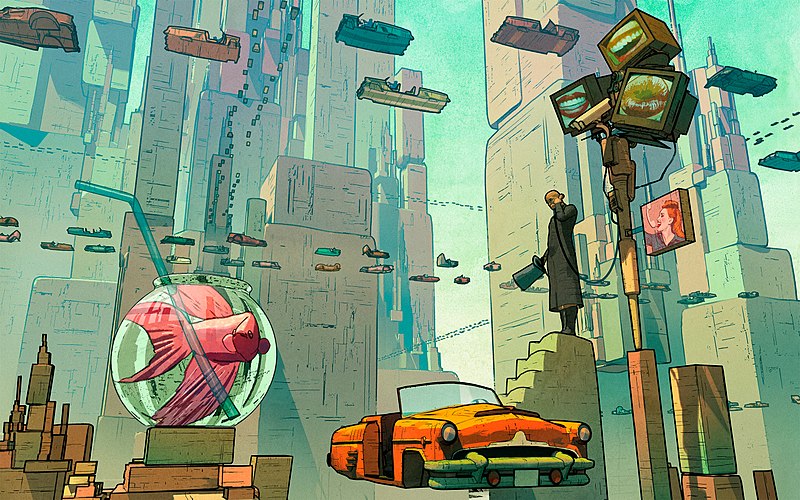Are you struggling with writing SciFi in a believable and engaging way? As a genre, science fiction allows writers to explore new worlds, create incredible technologies, and imagine what the future might hold. However, writing a successful science fiction story requires more than just a vivid imagination.
Before we dive into specific techniques, it’s important to understand what makes a science fiction story stand out. At its core, SciFi is all about the ‘what if?’ question. What if humans could travel through time? What if we made contact with an alien race? What if we could create artificial intelligence that exceeded our own? As you begin to write your story, consider what unique ‘what if?’ scenario you want to explore and use it as the foundation for your plot.
Elements to consider when writing SciFi:
- Technology: SciFi stories often involve advanced technologies that don’t yet exist in the real world. While it’s important to let your imagination run wild, it’s also essential to ensure your technology is grounded in some scientific possibility. Consider the laws of physics and how they might be bent or broken by your fictional technology.
- Worldbuilding: In science fiction, the setting is just as important as the characters and plot. Take the time to fully flesh out your story’s world, including the culture, government and social norms. Think about how your “what if?” scenario would affect the world and its people.
- Characters: Strong characters are crucial to any story, and this is especially true in science fiction. Your characters should be complex and believable, even if they live in a world far removed from ours. Consider their motivations, goals and personal conflicts as you write.
- Plot: A well-crafted plot is essential to any successful story. Make sure your plot is logical and flows seamlessly from one event to the next. Remember that your plot should be driven by your characters and their goals, not just the fancy technology or exotic setting.
Incorporate Science
While science fiction allows you to stretch the limits of reality, it’s important to incorporate elements of real science into your story. This helps to make your world feel believable and grounded. Research topics like astronomy, physics and biology to get ideas for your story and ensure you understand the scientific concepts you use.
Suspend disbelief
As a science fiction writer, it’s your job to make the impossible seem possible for your readers. To do this, you need to create a sense of suspension of disbelief for the reader. This means that while your readers may not fully believe in the world you’ve made, they will suspend their disbelief and go along with the story. One way to create this suspension of disbelief is to provide enough detail and explanation for your readers to understand and become immersed in your world and its characters.
Writing a successful science fiction story requires a unique ‘what if?’ scenario, well-crafted technology, a fully fleshed-out world, complex characters and a logical plot. Remember to incorporate real science and create a sense of suspension of disbelief to make your story believable and engaging for your readers. With this in mind, you’ll be well on your way to writing a fantastic SciFi tale.
When you are ready to publish your manuscript, we at ex libris can help you with editing, design, production and printing. We have decades of experience assisting authors in realising their goal of publishing their books, and we would be excited to work together with you on your project.
Image: ‘Talk To Me’ Stephane Wootha Richard, CC BY-SA 4.0 https://creativecommons.org/licenses/by-sa/4.0, via Wikimedia Commons.

 By continuing to use this website, you consent to the use of cookies in accordance with
By continuing to use this website, you consent to the use of cookies in accordance with